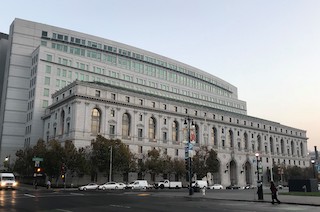Proposition 47, which may be applied to reclassify a felony as a misdemeanor, can significantly affect sentencing enhancements that are imposed for a prior felony conviction. However, there are limitations and understanding exactly how a judge will view one’s criminal history is critical toward clarifying how long someone will serve time in jail or prison.
Mr. Baldwin was charged in 2012 of second-degree robbery (Penal Code § 211), petty theft with three prior theft-related convictions (Penal Code §§ 484, 666) and misdemeanor brandishing a knife (Penal Code § 417). The information also alleged under Penal Code § 667.5(b) that Baldwin had six prior cases in which he had been convicted of a felony and served a prison sentence for each felony and in each instance, he had not remained free of subsequent prison custody or felony conviction for a period of five years.
Four of the six prior felony convictions were relevant to how he would later be resentenced subject to some of the prior convictions being reclassified as misdemeanors under Prop 47.
They were a June 1995 conviction for assault with a deadly weapon likely to produce great bodily injury (former Penal Code § 245(a)(1)). Then there were three Prop 47 eligible convictions for felony possession of a controlled substance (Health & Safety Code § 11377) from November 1998 and September 2000, as well as a November 2003 felony conviction for making or passing a fictitious check (Penal Code § 476).
 Court of Appeal First Appellate District San Francisco
Court of Appeal First Appellate District San Francisco
In June 2012, Baldwin was convicted by jury trial of second-degree robbery, petty theft with a prior (a felony) and misdemeanor brandishing a knife. Baldwin admitted all six prison prior enhancements under Penal Code § 667(b).
The trial court then sentenced him to nine years in state prison. This was computed by a three-year term for the second-degree robbery (mid-term) and six one-year enhancements for each of the prior prison terms without being free of prison for five years.
In 2014, Prop 47 was passed, making most possession of drug offenses and most theft offenses involving less than $950 straight misdemeanors. Under Penal Code § 1170.18, there was a process for people currently serving felony sentences for those offenses to petition for resentencing.
In July, 2015, Baldwin petitioned for resentencing of his prior felony petty theft conviction from 2012 as a misdemeanor.
Earlier, he had successfully petitioned under Prop 47 for reduction of his 1998 conviction for possession of a controlled substance, his 2000 conviction for the same offense and his 2003 conviction for forgery. Each of these convictions were reduced to misdemeanors.
Baldwin then argued that the prison terms associated with each of these convictions could no longer be considered as “prison priors” under Penal Code § 667.5(b). He cited to People v. Buycks (2018) 5 Cal.5th 857, wherein a similar situation was addressed and resentencing was found proper.
The trial court, however, denied resentencing for Baldwin on his 2012 felony petty theft with priors, finding that the judgement from 2012 was final and the enhancements were correctly imposed at the time of sentencing.
Baldwin then appealed to the First Appellate District, which reversed the trial court and remanded the matter for resentencing. It emphasized in its ruling that under Prop 47, when a charge is recharacterized as a misdemeanor, it is “for all purposes,” as stated in Penal Code § 1170.18(k).
However, the First Appellate Court was careful to distinguish this seemingly broad principal from overuse, by clarifying that Prop 47 did not alter the fact that, here, Baldwin nonetheless had served a qualifying prior felony prison term for purposes of Penal Code § 667.5(b), citing to Buycks at 889, fn. 13. This shifted the analysis to whether the five-year qualifying period applied to Baldwin based on his release date from prison custody and the 2012 incident date as required under 667.5(b).
The citation for the First Appellate District Court ruling discussed above is People v. Anthony Lee Baldwin (1st App. Dist., 2018 ) 30 Cal.App.5th 648.
Contact us.  Court of Appeal First Appellate District San Francisco
Court of Appeal First Appellate District San Francisco